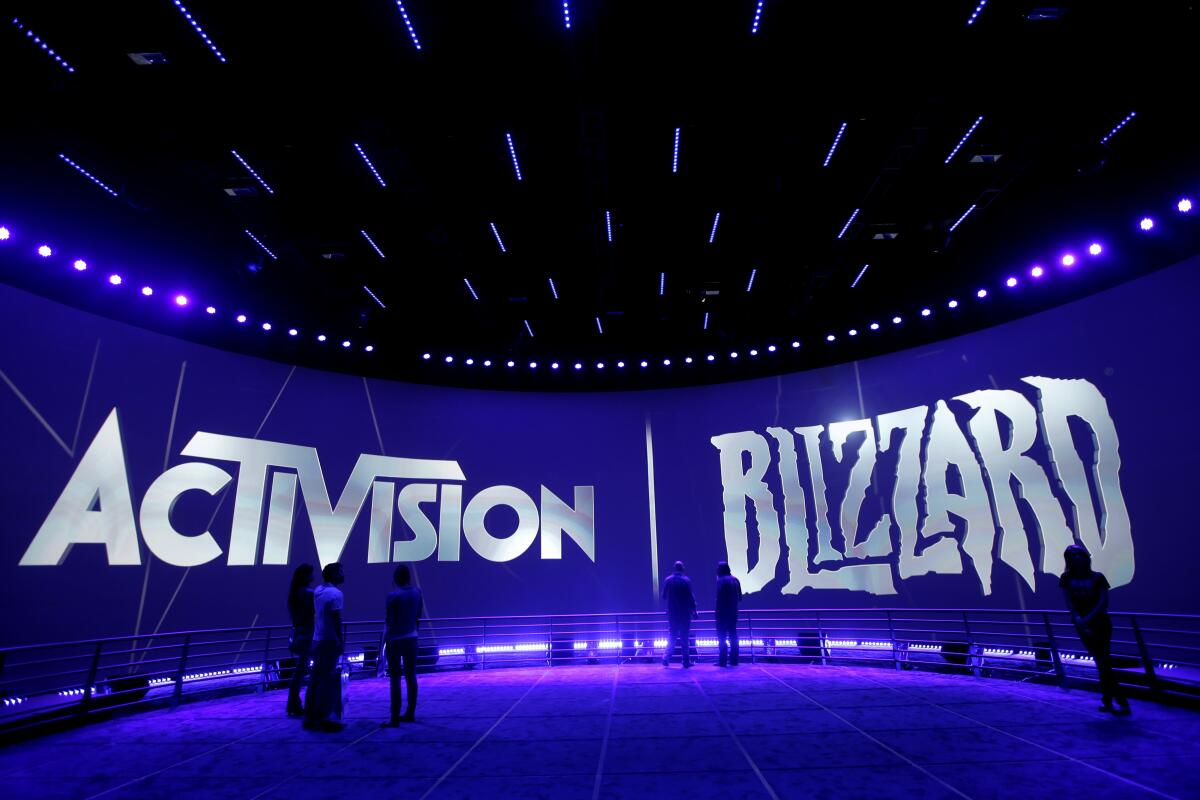Activision slammed for delaying vote on executive pay

- Share via
Activision Blizzard Inc.’s surprise decision to prolong its say-on-pay shareholder referendum is a “desperate attempt” to avoid losing the vote, according to a labor-backed investment firm that has been critical of the video game giant’s compensation.
“With 86% of shares already voted, it is doubtful that a significant number of shareholders wanted more time to consider the company’s executive pay practices,” said Michael Varner, director of executive compensation research at CtW Investment Group. “The Activision board should call an end to this charade.”
Activision took the unusual step of delaying the vote Monday when it released results of its annual meeting. The company announced vote totals for other shareholder proposals, but said it would withhold results on the say-on-pay measure so that investors could have more time to consider the matter. It plans to reconvene its meeting Monday to solely focus on that issue.
Activision cited “misleading” information that may have swayed shareholders against its compensation plan, which included paying Chief Executive Bobby Kotick $154.6 million last year — mostly in the form of stock awards.
The delay is “in the best interest of its shareholders,” Activision said. Investors should have “adequate time to review and consider the company’s recent responses to statements that were published and recirculated about the company’s executive compensation practices that the company believed to be misleading.”
But the company’s defense of its pay practices was already in the proxy statement that investors received, Varner said.
“If it were trending toward the outcome they want, then I doubt they would have delayed it,” said Doug Clinton, a managing partner at Loup Ventures. “It feels a little like trying to win a battle at the sake of worse positioning in the war.”
CtW has lobbied against Activision’s pay packages in 2020 and 2021, and the movement has gained momentum. The top shareholder-advisory firms also recommended voting against the pay proposal this year, and institutional investors such as the teachers pension fund CalSTRS said they voted no.
“We believe that shareholders cannot support the current compensation policies put in place by the company’s directors,” Egan-Jones Proxy Services said in a report. “Furthermore, we believe that the company’s compensation policies and procedures are not effective or strongly aligned with the long-term interest of its shareholders.”
Institutional Shareholder Services and Glass Lewis & Co. also recommended a no vote. The CEO’s stock award in 2020 was “outsized,” ISS said in its report.
Though say-on-pay measures aren’t binding, low approval rates generate bad publicity for companies and reflect shareholder ire. Kotick’s pay package ballooned in 2020, largely due to stock awards of nearly $150 million. It climbed more than 400% from $30.1 million in 2019.
The stock awards included grants made as part of Kotick’s four-year 2016 employment contract. His salary, meanwhile, declined 15% to $1.5 million.
The 2020 say-on-pay vote received 57% support from shareholders, down from previous years. That spurred the company to hold more than 70 meetings with shareholders owning a total of about two-thirds of the company’s shares.
Activision decreased Kotick’s base salary and cash bonus by 50%, and made sure his compensation is almost all based on performance. The maker of “Call of Duty” highlighted those changes in its statement Monday, arguing that criticism leveled at the company has been unfair.
Activision shares rose 56% last year, outpacing the S&P 500, and 28% in 2019. This year, they’re up 3.4%.
“Despite exceptional shareholder returns, the company has made significant changes to address shareholder feedback,” Activision said. “The company has more closely aligned CEO and shareholder interests.”
Bloomberg writer Christopher Palmeri contributed to this report.






